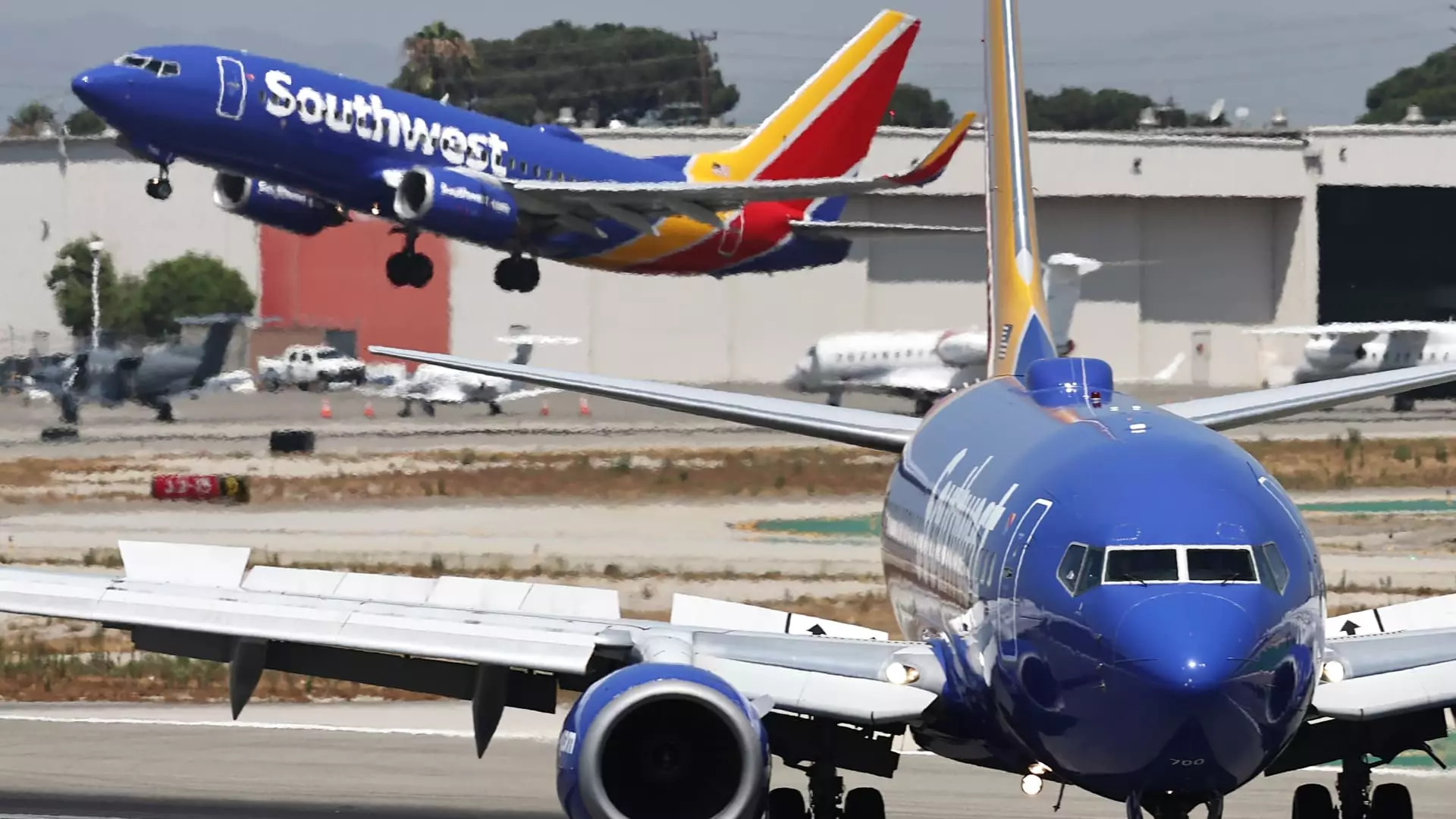In a surprising turn of events, Southwest Airlines updated its financial projections for the third quarter, revealing a more optimistic revenue forecast. On Thursday, the airline raised its expectations, predicting a unit revenue increase of up to 3%, a significant shift from earlier predictions which foresaw a potential decline of 2%. This positive recalibration of financial forecasts is attributed in part to the airline’s ability to accommodate passengers affected by a notable technical outage experienced by another airline in July. Such agile responses to unforeseen circumstances underscore Southwest’s capacity to adapt.
In conjunction with this updated revenue outlook, Southwest Airlines also announced the board’s approval for a noteworthy $2.5 billion stock buyback plan. This strategic move is aimed at enhancing shareholder value and reflects the airline’s intent to maintain a robust financial position amid external pressures, particularly from activist investment group Elliott Investment Management. Additionally, the incorporation of Bob Fornaro—a seasoned executive with deep-rooted ties to the airline industry—onto the board signifies a notable shift in governance. Fornaro’s return could reinvigorate the board with fresh perspectives drawn from his extensive experience, including his previous leadership role at Spirit Airlines.
In a comprehensive presentation at Southwest’s Dallas headquarters, executives, led by CEO Bob Jordan, set forth their strategic vision for the airline’s future. Under mounting pressure from Elliott, which has called for changes within the leadership team, the airline executives aimed to reassure investors of their commitment to bolstering profits and enhancing revenues. Their strategy includes a significant overhaul of the airline’s business model—an initiative that has been underway for several months. Key changes include the introduction of assigned seating and premium options, such as extra legroom, both of which are anticipated to drive additional revenue streams.
Despite these adjustments, Southwest is steadfast in retaining its customer-friendly policy of allowing two free checked bags—an element that distinguishes it from competitors and arguably drives market share gains even if it comes at the cost of potential ancillary revenue from baggage fees. This decision reflects a core philosophy that prioritizes customer satisfaction and loyalty over immediate financial gains.
Alongside these strategic financial and operational shifts, Southwest has announced a reduction of services in Atlanta starting next year, anticipating the need to streamline operations and potentially reduce the workforce by cutting over 300 flight attendants and pilots. This decision underlines the complexities faced by airlines in balancing operational efficiency with passenger demand.
Moreover, with the recent announcement of Gary Kelly’s departure as executive chairman by the end of next year, the imminent leadership transition raises further questions about Southwest’s adaptability in a competitive airline landscape. While Elliott continues to advocate for a complete leadership overhaul, the future trajectory of Southwest Airlines remains uncertain. It will be crucial for the airline to navigate these challenges while retaining the fundamental principles that have cultivated its brand loyalty over the decades.

